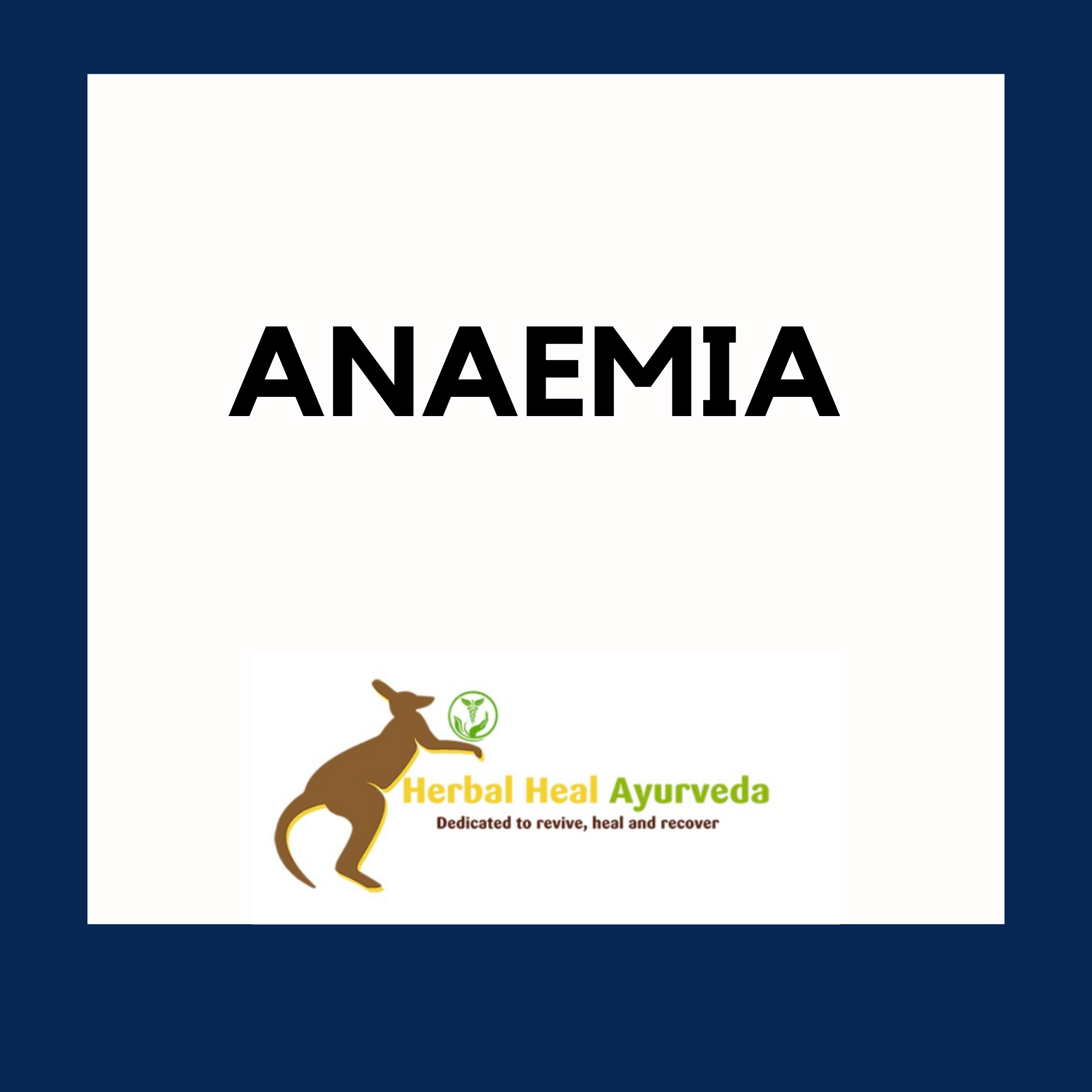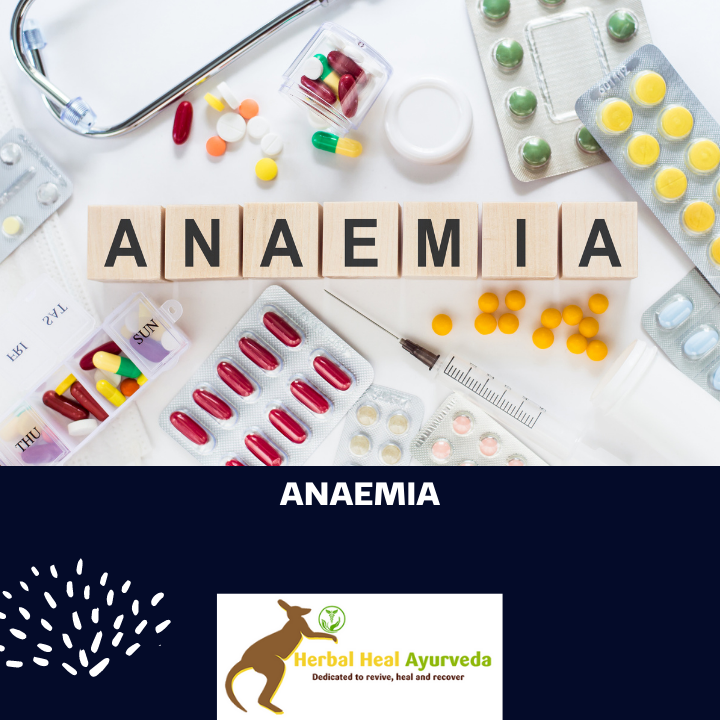Anaemia
A clinical condition of Reduction in the haemoglobin concentration of the peripheral blood below the normal level in relation to age and sex is termed Anaemia. This condition causes reduced oxygen flow to the organs leading to various abnormalities. Moreover, it should be remembered that Anaemia is not a disease by itself but a sign of an underlying illness.


Causes of anaemia:
A bunch of causes are found that lead to Anaemia in the body. They are as follows:
Excessive blood loss (Haemorrhage)Impaired RBC (red blood cell) formation due to:
- Thalassemia
- Iron deficiency/folic acid deficiency
- Protein malnutrition.
- Infection/ inflammation
- Renal/ Hepatic failure
- Vitamin B12 deficiency
- Aplastic Anaemia
- Drug-induced Anaemia.
Haemolytic Causes:
- Extrinsic factor- Vitamin B12, Iron, Folic acid
- Intrinsic factors - Bone marrow
•Worm infestations.
•Various diseases. - Scurvy- Vitamin c deficiency disease characterised by Haemorrhagic manifestations.
- Purpura
- Malaria- An infectious disease due to protozoa of the genus plasmodium.
Signs and symptoms
Anaemia is a symptom of various diseases, but it also has some indicators depending on the causes and their severity.
- Pallor
- Weaknesses
- Lethargy
- Palpitations
- Dyspnoea
- Vertigo
- Drowsiness
- Hair fall issues
- Headache
- Indigestion
- Cramp in the calf muscle
- Sensory bunting
- Swelling around eyes
- Excessive sleep
- Dizziness
- Cold hands and feet
Risk factors
- Diet lacking in vitamins and minerals- A diet consistently low in iron, vitamin B-12, folic acid and copper increases the risk of Anaemia.
- Intestinal disorders- such as Crohn's disease and celiac disease — put you at risk of Anaemia.
- Menstruation- Women having late menopause and heavy menstrual bleeding are at a greater risk of developing iron-deficiency Anaemia
- Pregnancy- Pregnant women require more iron and folic acid in their bodies. Taking insufficient quantities increases the risk of Anaemia.
- Chronic conditions- If someone has cancer, kidney failure or another chronic condition increases the risk of Anaemia due to a shortage of red blood cells. Slow, chronic blood loss from an ulcer or other source within the body can deplete the body's store of iron, leading to iron deficiency anaemia
- Family history- If a family has a history of inherited Anaemia, such as sickle cell anaemia, it increases the chance here.
- Age- People over age 60 are found to be at risk of developing Anaemia
Diagnosis
- BLOOD TESTS
1. A CBC (Complete blood count) test is done to find out the total RBC count, Haemoglobin percentage, MCV (mean corpuscular volume), MCH and other parts of the blood.
2. Reticulocyte count is done to check for immature RBC.
3. Differential count of WBC is done.
Anaemia: Ayurvedic View
Anaemia is Correlated to Pandu Roga according to Ayurveda.
पाण्डुत्वेनोपलक्षितो रोगा: पाण्डुरोगा:।
The clinical condition that sets in a person due to Kshaya (loss)of rakta dhatu, loss of meda (fat), and due to ojaKshaya (diminished tissue essence) leads to weakness of the sense organ and vaivarna (pallor) of the skin. This condition is known as Pandu. Here the standard colour of the body changes to dull red, pale yellow and White in successive stages.
Causes:
- Due to intake of Viruddha Ahar- Mutually incompatible food.
- Due to excessive intake of Amla , lavan and kshar
- Tikshna Ahar sevan -Consuming sharp potency food.
- Atimadya sevan- Excessive intake of alcohol.
- Pramitasana- Intake of food items having a single rasa(taste) repeatedly
- Ajirnasana- Intake of food before digestion of the previous meal.
- Viruddha chestha- unwholesome lifestyle practices.
- Merida Sevan- Intake of mud
- Nischestha- lack of Exercise/sedentary
- Ativyayam- Excessive physical exercise.
- Rituvaishamya- Seasonal incompatibility.
- Divashayan- Day sleeping.
- Vega Dharan- Forcible suppression of natural urges.
- Improper administration of panchakarma.
Types:
- According to the involvement of Dosha
1. Vataja Pandu roga
2. Pittaja Pandu roga
3. Kaphaja Pandu roga
4. Tridoshaja pandu roga
5. Mrittika janya pandu roga (intake of mud)
Signs and Symptoms:
- The premonitory sign and symptoms are as follows:
1. Hridaya Spandan- Palpitations
2. Rukshata- Dryness of skin
3. Swedabhab- No sweating
4. Steevan- Excessive salivating
5. Akshikutha Sotha- Swelling around the eyes
6. Avipaka- Indigestion
7. Thakavat- Fatigue
Now let's have a look at the Chief signs & Symptoms of Pandu Roga(Anaemia).
1. Raktalpata- Scanty blood
2. Durbalata- Weakness
3. Bhrama- Vertigo
4. Aruchi- Anorexia
5. Jwar- Occasional fever
6. Swash- Exertional dyspnoea
7. Pindikodwestan- Cramp in the calf region
8. Alpa Vak- feeble Speech
9. Agnimandya- Indigestion
10. Karnasweda- Tinnitus
11. Uru ruk- Thigh pain
12. Kati ruk- Low back pain
Sign and Symptom of Mridbhankshan janya (intake of mud) pandu:
1. Akshikuta sotha- Swelling around the eyes
2. Pada sopha- Swelling in feet
3. Udar krimi- Intestinal Worms
4. Agnimandya- Indigestion
5. Ojokshaya- Diminishing of Ojo
6. Sakapha mal- Stool with phlegm
7. Sarakta mal- Blood mixed stool
8. Vrana nasha- Destruction of colour
9. Virya nasha- Destruction of the potency of the body
Basic Principles for Treatment:
The treatment procedure mainly focuses on correcting and regulating the tridoshas.
- Nidan parivarjan- Avoid a diet that can lead to aggravation of Pitta.
- Abhyantar Snehapan- With the help of Dadima ghrita, Katukadya Ghrita, Kalyanak ghrita
- Vamana (Emetic Therapy)- Specially done for Kapha pradhan pandu Rogi with Katu tikta(pungent & bitter) ras dominating drugs
- Virechan (Purgation) with haritaki churna / (Castor oil + Cow milk). This is done mainly for pittaja pandu rogi.
- Basti (Enema) – Raktabasti is an effective measure to tackle Anaemic problems.
Single Herbs (Drug of choice)
Bhumyamlaki, Amlaki, Punarnava, Kalmegha, Katuki, louha, Ghritkumari,
Yasthimadhu, Haridra, Bhringaraj, Vasa, kiratatikta,
Daruharidra.
Diets and Regimen to be followed (Pathya):
- Diet- Yava, Moong dal, Jangal mamsa Ras (meat soup), Haridra, Madhu, ghrita, Takra, Amlaki, Gajar(Carrot), Banana, the mixture of sattu & honey
- Regimen- Mild Purgation, Moderate exercises, Pranayam.
Diets and Regimen to be Avoided (Apathya):
- Diet- Tambul sevan (betel nut), Sarsap (Mustard), Amla(sour) lavan (salty) , Matsya ( fish), Shura(Alcoholic drinks)
- Regimen- Vega Dharan (Suppression of natural urges), Ratri Jagran (Staying awake at night), Ativyayam (Excessive Exercise), Divashayan (day sleep), Chinta and krodha (stress and anger).
Self-medication is not advisable. Advises are only for general information; you must consult an Ayurvedic doctor before making any lifestyle changes, diet changes or consuming ayurvedic drugs.
Book an Ayurveda Consultation with Dr Aswani Anil (B.A.MS). For more details, contact us at info@herbalheal.com.au,
166, Saint Johns Road, Glebe
Mobile - 0426 108 576
Herbal Heal Ayurveda Offers Authentic Kerala Ayurveda medicines, Ayurvedic diet advice and Authentic Panchakarma treatment. Come and experience the ayurvedic way of life with Dr Aswani Anil(B.A.M.S) at Herbal Heal Ayurveda Sydney.

